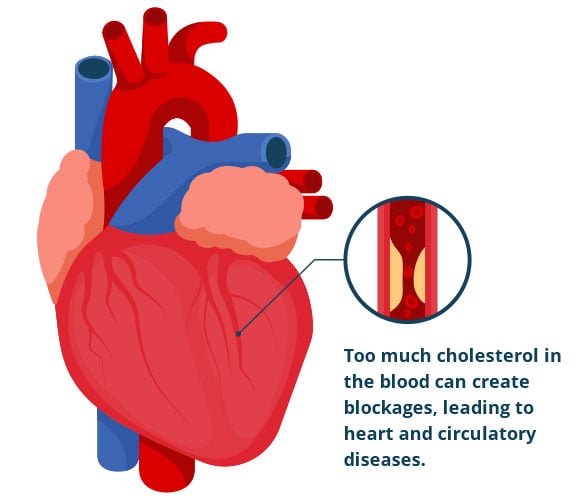High Cholesterol: Causes, First Signs And How To Manage
High cholesterol is a common health issue that affects millions of people worldwide. It often goes unnoticed until it leads to more serious conditions like heart disease or stroke. Understanding the causes, recognizing the first signs, and learning how to manage high cholesterol can significantly improve one's quality of life and overall health.
Related Topics (ads):

Causes of High Cholesterol
High cholesterol can be attributed to a variety of factors, ranging from lifestyle choices to genetic predispositions. Here are some common causes:
- Poor Diet: Consuming large amounts of saturated fats, trans fats, and cholesterol-rich foods can raise cholesterol levels.
- Lack of Physical Activity: Sedentary lifestyles contribute to weight gain and can lead to higher LDL (bad cholesterol) levels.
- Obesity: Being overweight is associated with higher cholesterol levels and increased risk of heart disease.
- Smoking: Cigarette smoking lowers HDL (good cholesterol) and damages blood vessels, increasing the risk of plaque build-up.
- Genetics: Familial hypercholesterolemia is a genetic condition that causes high cholesterol levels, regardless of lifestyle choices.
First Signs of High Cholesterol
High cholesterol often does not present obvious symptoms, which is why it's sometimes referred to as a "silent" condition. However, there are subtle signs and symptoms that may indicate elevated cholesterol levels:
- Chest Pain: Also known as angina, chest pain can occur when cholesterol plaques narrow or block coronary arteries.
- Fatty Deposits: Yellowish deposits around the eyes or on the skin, known as xanthomas, may signal high cholesterol.
- Sudden Dizziness or Numbness: These symptoms may occur if high cholesterol leads to a stroke or mini-stroke.
- Regular Check-Ups: Routine blood tests are crucial as they can detect high cholesterol levels before symptoms manifest.
How to Manage High Cholesterol
Managing high cholesterol involves lifestyle changes and, in some cases, medication. Here are some effective strategies:
- Adopt a Heart-Healthy Diet: Focus on eating foods low in saturated and trans fats. Include more fruits, vegetables, whole grains, and lean proteins in your diet.
- Exercise Regularly: Engage in at least 150 minutes of moderate aerobic activity or 75 minutes of vigorous activity each week to help lower cholesterol levels.
- Maintain a Healthy Weight: Losing excess weight can significantly improve cholesterol levels and overall heart health.
- Quit Smoking: Smoking cessation can improve HDL cholesterol levels and reduce the risk of heart disease.
- Limit Alcohol Intake: Drinking alcohol in moderation can help manage cholesterol levels. However, excessive consumption can lead to increased cholesterol and blood pressure.
- Medication: In some cases, doctors may prescribe statins or other medications to help lower cholesterol levels.
In conclusion, understanding the causes and first signs of high cholesterol, combined with proactive management strategies, can help reduce the risk of serious cardiovascular complications. Regular check-ups and a commitment to a healthier lifestyle are essential in controlling cholesterol levels effectively.